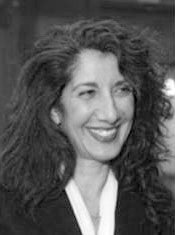Interview with Nilüfer Gole
(Paris)

Nilüfer Gole is Professor of Sociology at Ecole des Hautes Etudes en Sciences Sociales .
What does ‘diversity’ mean to you by way of your work and field of expertise?
I think that the word 'diversity' is misleading if we understand it as a reference to existing social differences. All societies are different. We can address the question to our democracies and ask who the actors are and how they claim and manifest their differences. The differences in question can be ethnic, religious, class, gender and race. But these categories are not independent of the social movements, agencies, and collective claims that make them explicit. I am particularly interested in the ways Muslim migrant citizens in Europe bring religious symbols and practices to the public stage. By means of Islamic covering, praying, and dietary habits, Muslim actors carry their religious piety from the private to the public realm. Religious symbols, such as veils, mosques, and halal food gain visibility in Europe and trigger a series of controversies. This means that European democracies are trying to deal with, negotiate, accommodate or simply reject Islamic difference. The category of difference is therefore closely related with the subjectivity and the agency of the actors. The social dynamics of difference is determined by the subjective meanings that actors attach to religious symbols and performances as well as the public perceptions of them. By visibility of difference, I understand the contested nature of difference; the aspects that become “visible”, ostentatious, disturbing and controversial to the public eye. There are different strategies of dealing with one’s difference; as much as one can make them explicit and manifest in public, like “coming out” for gay movements, one can also look to keep the difference invisible, in secret and in private. Apart from strategies of visibility and invisibility of difference, I am interested in the way differences are carried into material forms, fashioning bodies, and shaping urban spaces. In my approach to religious difference, I try to go beyond a politics of identity and recognition.
Is ‘diversity’ just like a Zeitgeist term or a post-multiculturalism policy catch phrase, a corporate tool, or can it be a concept that can help structure and advance social scientific analysis?
The theme of difference in societies is not limited to post-modern relativism or multicultural politics. It is one of the major questions about society that sociologists have raised since raise since the foundation of the field. We can inverse the question and ask as sociologists have done: how can unity be created in spite of differences? What unites us? A Constitution, the nation-State, religion or perhaps a community of language? We have to keep both ends of the equation in mind; how to link unity and difference? We do not have one single answer, the modalities of linking them change in accordance with historical epochs. Multiculturalism was related with contemporary European countries, discovering the cultural realm of differences, as I have said before, especially in relation to feminist critique, post-colonial anti-racism, and hegemony of patriarchal norms etc. In relation to Islamic difference, multiculturalist discourse came to a halt. There is no theoretical, political frame for thinking and dealing with Islamic difference, other than asking for its assimilation.
At the MPI-MMG, we are looking to develop research and theory spanning contemporary immigration societies and longstanding multi-ethnic and multi-religious societies, How do you see the concept of ‘diversity’ shaping this agenda – or not?
Once again I'm skeptical of diversity as a tool to shape this agenda because if it does not capture relations of power, exclusions, and stigmatization. Diversity without referring to agency, as a naturalized category of difference, risks “reification” of difference. On the contrary migrants are those populations who hardly recognize themselves under any fixed, given categories of ethnic, national identities, and religious difference. They are constantly shifting between languages, communities, frontiers, and re-inventing between their differences and commonalities with the larger societies.
Very good. I like your answer. From your perspective, what are a few of the key empirical, theoretical and/or methodological challenges currently facing ‘diversity’-related research? What do you think? What is the challenge?
We need to make the diagnosis and say that the category of difference is related to a “politics of identity” and is framed by policies of multiculturalism, that have shaped social scientific research and European democracies in the post/68 period and come to an end. We are entering into a new stage, the challenge is to link the category of religion to new forms of agency and political framing. The boundaries of social scientific research should be extended to include the domain of visual art, aesthetics and architecture.
Interviewer: Weishan Huang
